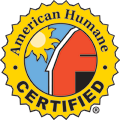Yet more disturbing videos have been released showing the abuse of animals raised for food. Last month, two separate investigations by animal advocacy organizations exposed the mistreatment of birds raised and slaughtered by poultry producer Foster Farms.
The first investigation was conducted by the group Mercy for Animals at Foster Farms in Fresno, California, where in March and April undercover workers documented the mistreatment of chickens at both a raising facility and a slaughterhouse. A video shows workers tossing young chicks onto the ground at the raising facility, which is littered with sick and injured birds. At the slaughterhouse, workers are seen punching and shoving birds during shackling, and there is evidence that some birds have been scalded alive in feather-removal tanks. Foster Farms responded to the release of the video by suspending five workers.
The second investigation documented the inhumane killing of sick and injured day-old birds at a turkey hatchery operated by Foster Farms, also located in Fresno.
Unfortunately, similar images of animal suffering on corporate farms have surfaced before. But there was something different about these investigations. In these instances, the producer caught in the act of abusing animals was certified by a third-party: the American Humane Association.
Whenever an independent party inspects farms and slaughterhouses, animals—and ultimately consumers—benefit. However, what consumers likely don't realize is that the animal care standards of the auditing organizations vary greatly, and sometimes are only marginally better than the voluntary guidelines of the conventional animal agriculture, or "factory farming," industry.
Such is the case with American Humane Certified.
American Humane is currently certifying the raising of more than 1 billion animals for food. It recently experienced what it describes as a "remarkable 1,150 percent increase" in the number of animals certified. The peak of its growth occurred in 2012-2013, when Foster Farms began participating in the American Humane Certified program—and when the program lowered its standards for the raising of meat chickens. The 2012 revision of its chicken standards decreased the minimum amount of space provided to each bird, and it slashed the minimum light intensity inside the sheds where chickens are warehoused to 10 lux, or the equivalent of a lighted parking lot at night. (In contrast, a chicken allowed to go outside on a sunny day would be exposed to 10,000-30,000 lux.)
Look at the American Humane Certified seal and you'll see a blue sky with a blazing sun shining down on a red barn, with what appears to be an open barn door.
 Except that is not an accurate representation of how animals are raised under the program. American Humane does not require that chickens—or turkeys or pigs, for that matter—ever go outdoors. The program does not require that fresh air be let into the barn, or that birds be able to enjoy sunlight, inside or out. The sun might be shining brightly outside, but the birds would never know it, stuck as they are in a constant, gray gloom.
Except that is not an accurate representation of how animals are raised under the program. American Humane does not require that chickens—or turkeys or pigs, for that matter—ever go outdoors. The program does not require that fresh air be let into the barn, or that birds be able to enjoy sunlight, inside or out. The sun might be shining brightly outside, but the birds would never know it, stuck as they are in a constant, gray gloom.
It is evident that American Humane's concept of "humane" is not in sync with that of American consumers. In a food labels survey conducted by Consumer Reports National Research Center, 75 percent of consumers said the "humanely raised" claim should mean that the animals were raised without cages, and 79 percent said it should mean animals went outdoors. Similarly, in a poll commissioned by the Animal Welfare Institute, 79 percent of frequent chicken shoppers said confinement indoors for a chicken's entire life is unacceptable. In the same survey, 87 percent of frequent chicken shoppers said it is unacceptable to not provide chickens with access to fresh air and sunlight.
In its assessment of the American Humane Association label, Consumer Reports notes that "many of the requirements in the American Humane standards mirror the conventional industry's practices," and "the program does not require certain standards that consumers are likely to expect from a welfare label." Consumer Reports also observes that producers can be certified without meeting all of the program requirements.
In fact, the American Humane Certified standards for meat chickens are the lowest of any animal welfare certification program. American Humane Certified is also the only non-industry program to significantly lower its animal care standards over time, and the only animal welfare certification program to allow continuous confinement of egg-laying hens in cages.
In early July, Mercy for Animals filed a complaint with the Federal Trade Commission (FTC) against Foster Farms and American Humane for misleading consumers with the claim that Foster Farm's treatment of chickens is "humane." A similar complaint was filed with FTC last November over the marketing of Butterball turkey products as "American Humane Certified." Baring action from federal regulators—or a significant raising of its standards by American Humane—shoppers will be on their own in determining the appropriateness of humane claims.
If consumers understood the true meaning of the American Humane Certified seal, perhaps they would choose a different type of product—free range or organic, for example—or maybe they would choose not to eat meat at all. There is little question that American Humane's seal and other marketing materials are misleading, and that its animal care standards are inconsistent with the public's perception of what is "humane."
